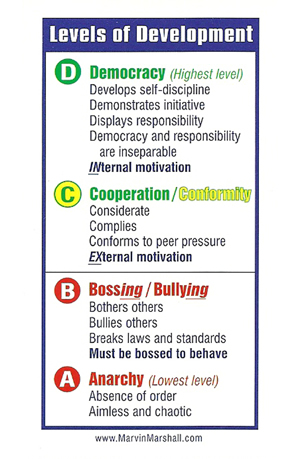More and more kindergarten teachers tell me each year, “This is the worst group of kids I’ve ever had.”
Does this ring true for you too?
The reason teachers have this perception is that young children do not have the social skills that children developed in prior years. In many communities and schools today, kids are deprived of opportunities to engage in play activities that prompt both creativity and successful social relationships. Instead, they are engaged in developing academic skills (many boys of whom have not yet developed cognitively enough to be successful).
This push for academics at an early age (some children are being pushed to read by age 3!) is at the expense of promoting empowering self-images and … >>>
READ MORE >>> →





